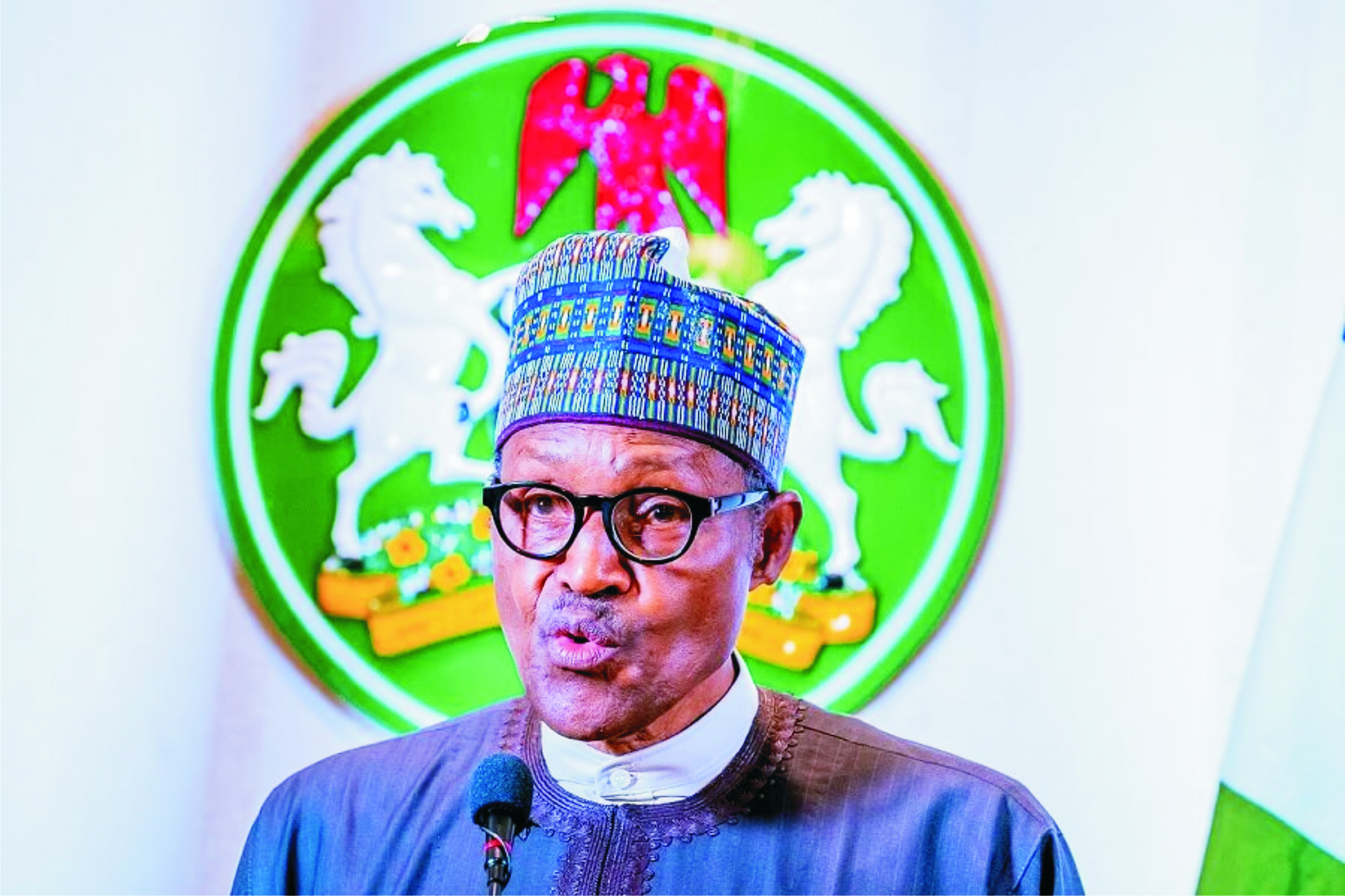Editorial
Buhari, Save Nigeria Now

Nigeria was fully enclosed in violence as the popular #EndSARS protests entered a dangerous spiral. This followed years of failed promises to end police brutality, especially by officers and men of the disbanded Special Anti-Robbery Squad (SARS). Hooligans, taking advantage of the protests, overran prisons across the country, setting inmates free as well as embarking on unrestrained destruction of properties.
The Bus Rapid Terminal ( BRT) Station in Oyingbo, Lagos, the Nigeria Ports Authority (NPA), a famous television station, Television Continental (TVC) Nigeria, the Lagos headquarters of The Nation newspapers, and police stations across the country were razed to the ground over the ensuing massacre of protesters at the Lekki toll gate in Lagos.
The palaces of the Soun of Ogbomosho, Oladunni Oyewumi and the Oba of Lagos, Rilwan Akiolu, were equally touched. Before the violent turn, the #EndSARS protests had captured global interest, with highly placed international figures identifying with the miseries and quests of the protesters and calling on the Nigerian government to meet their demands.
Since the anti-Structural Adjustment Programme (SAP), unrests of June 1989, there is scarcely any issue on which Nigerians have attained a broad consensus like the #EndSARS protests. Political, ethnic and religious sentiments were jettisoned as the youths spoke out strongly against years of calculated assaults by the police.
Amid the tremendous protests, the Inspector-General of Police (IGP), Mohammed Adamu, dissolved all SARS formations and assured that a new policing system to deal with armed robbery and other violent crimes that fell within the mandate of the sundered unit would be created.
The Presidential Panel on the Reform of SARS promptly acceded to the five-point demand of the #EndSARS protesters, to wit, the release of all persons arrested and justice for victims of police brutality, setting up of an independent body to investigate every report of police misdeed; psychological examination of the dissolved SARS officers before redeployment, and augmentations to the salaries of police personnel.
A communiqué issued by a presidential spokesman, Femi Adesina, after the panel’s meeting, stated that the forum ratified the dissolution of SARS, reaffirmed the constitutional rights of Nigerians to peaceful assembly and protest, and substantiated the sanctity of life of every Nigerian and the role of the police in conserving these rights.
The release further indicated that reform proposals would be based on the Constitution of the Federal Republic of Nigeria and existing legislations such as the Nigeria Police Act (2020), the Nigeria Police Trust Fund Act, 2019, the Administration of Criminal Justice Act, 2015, the Anti-Torture Act, 2017, and the National Human Rights Commission Act, 2010, amongst others.
The forum then called for timely steps, including an order to all state police commands to end the use of force against protesters; outright release of arrested protesters and citizens; and open communication and outreach to citizens to establish trust and confidence, and a roadmap for the implementation of the White Paper of the Presidential Panel on the Reform of the SARS.
However, action was yet to commence when the IGP announced the formation of a new unit, the Special Weapons And Tactics (SWAT), to replace SARS. And when the Nigerian Governors Forum (NGF), hinted that the new unit was very distasteful to Nigerians, he stuck to his guns, further inflaming passions and bolstering the notion that the disbandment of SARS and its swift replacement with SWAT was a strategy for continual police savagery in disguise.
While the revolts proceeded, it was obviously noticed that artfully manipulative actions were in operation. The most distinguished confirmation of this subterfuge was the brutal attacks on #EndSARS protesters by hoodlums at the Federal Capital Territory (FCT), Abuja. Then came the cruel shootings at defenceless protesters by the Nigerian military at the Lekki toll gate that finally discarded any restraints previously placed on global anger.
We were shocked that even with the descent into the escalating violence, President Muhammadu Buhari maintained a stunned silence despite pleas to act by prominent individuals and groups within and outside the country, including highly placed persons such as former United States Secretary of State, Hillary Clinton, Democrat presidential candidate, Joe Biden, the Archbishop of Canterbury, Justin Welby, among others.
Though Nigerians eventually heard from the President, his address was adjudged to lack substance. We recall a similar conduct of the President during the highly intensive Covid-19 era. While African leaders with fewer cases were regularly speaking to their citizens, President Buhari was silent for 24 days after the index case on February 28. This inclination to be reticent when Mr President should speak, particularly during a national crisis, gives cause for grave concern.
In line with popular thoughts, The Tide agrees that the Federal Government failed spectacularly in its handling of the protests. Rather than shoot at protesters, efforts could have been made to continually engage the young demonstrators, give regular updates on actions taken to reform the police, and repeatedly appeal for calm while deploying security agents to trouble spots under stringent rules of engagement.
For that reason, we seek justice for all the protesters that were killed unjustly. We salute the courage of the #EndSARS demonstrators and applaud them for making their efforts worthwhile. Clearly, they have proved to the nation, and the world, the much unity can accomplish. Nonetheless, we appeal for calm and implore them to interface with the government to resolve the extant issues.
The authorities must realise that the protests have since gone beyond police brutality to a response to the dismal situation in the country and the terrible conditions of most Nigerians despite the self-adulations of our leaders. Therefore, The Tide urges Buhari to pursue strict implementation of the five-point demand by the protesters and call a halt to the nation’s rapid descent into anarchy.
Editorial
For A Prosperous 2026

Editorial
Task Before New Defence Minister
Editorial
HYPREP And The Collapsed Water Tank


